Rare Nirvana Interview Translated From Rockin' On November 1993
Kurt Cobain: Wrestling with Pessimism and Self-Destruction
"I had to exorcise my pessimistic and self-destructive tendencies with this album."
What changes did the success of ‘Nevermind’ bring? Why was the album title changed? Did Kurt Cobain find salvation in his beloved Courtney?
In a groundbreaking interview, Nirvana reveals the mysteries behind their controversial album ‘In Utero.’
Interview: Yoshiyuki Suzuki
Photos: Anton Corbijn
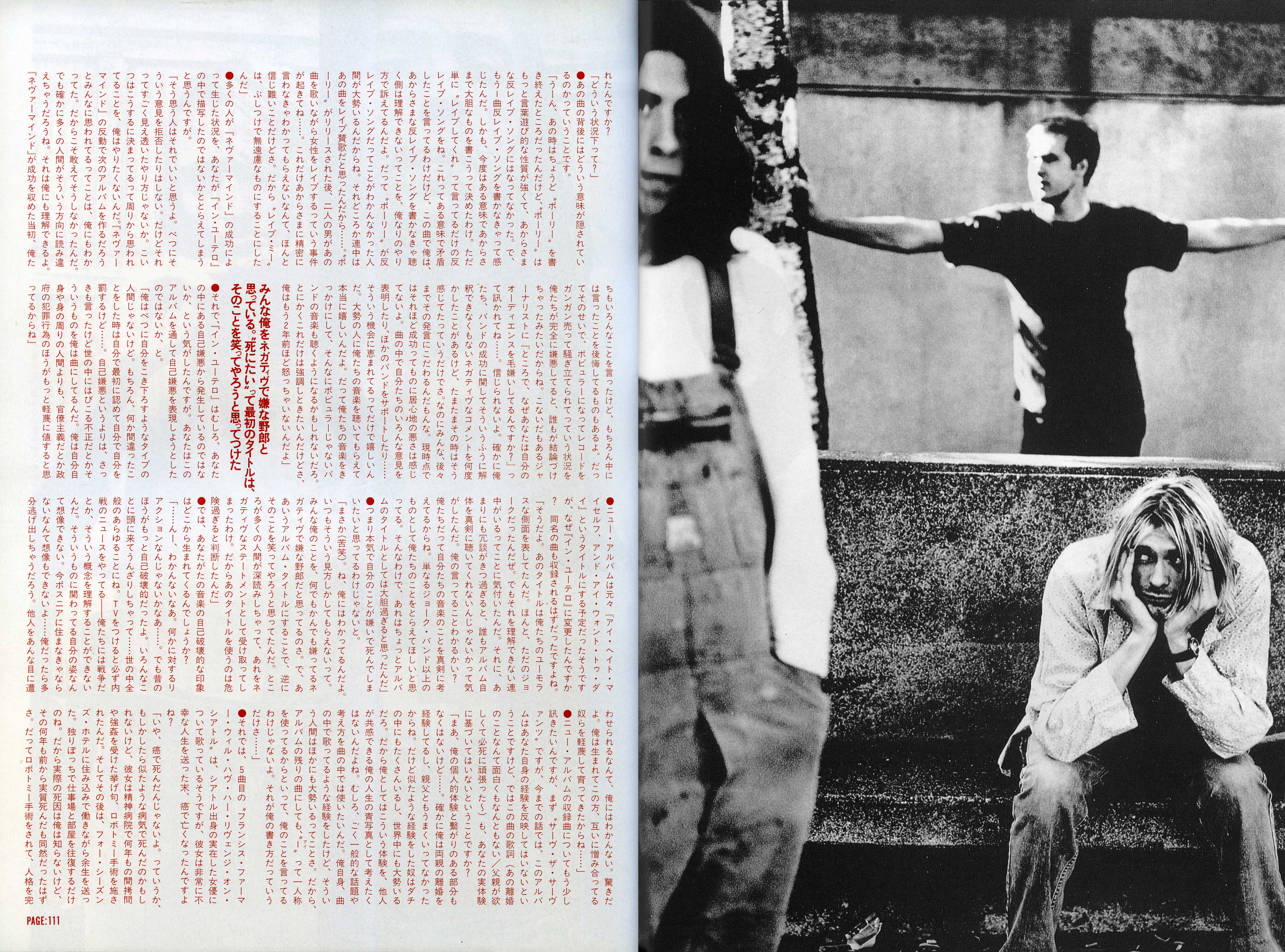
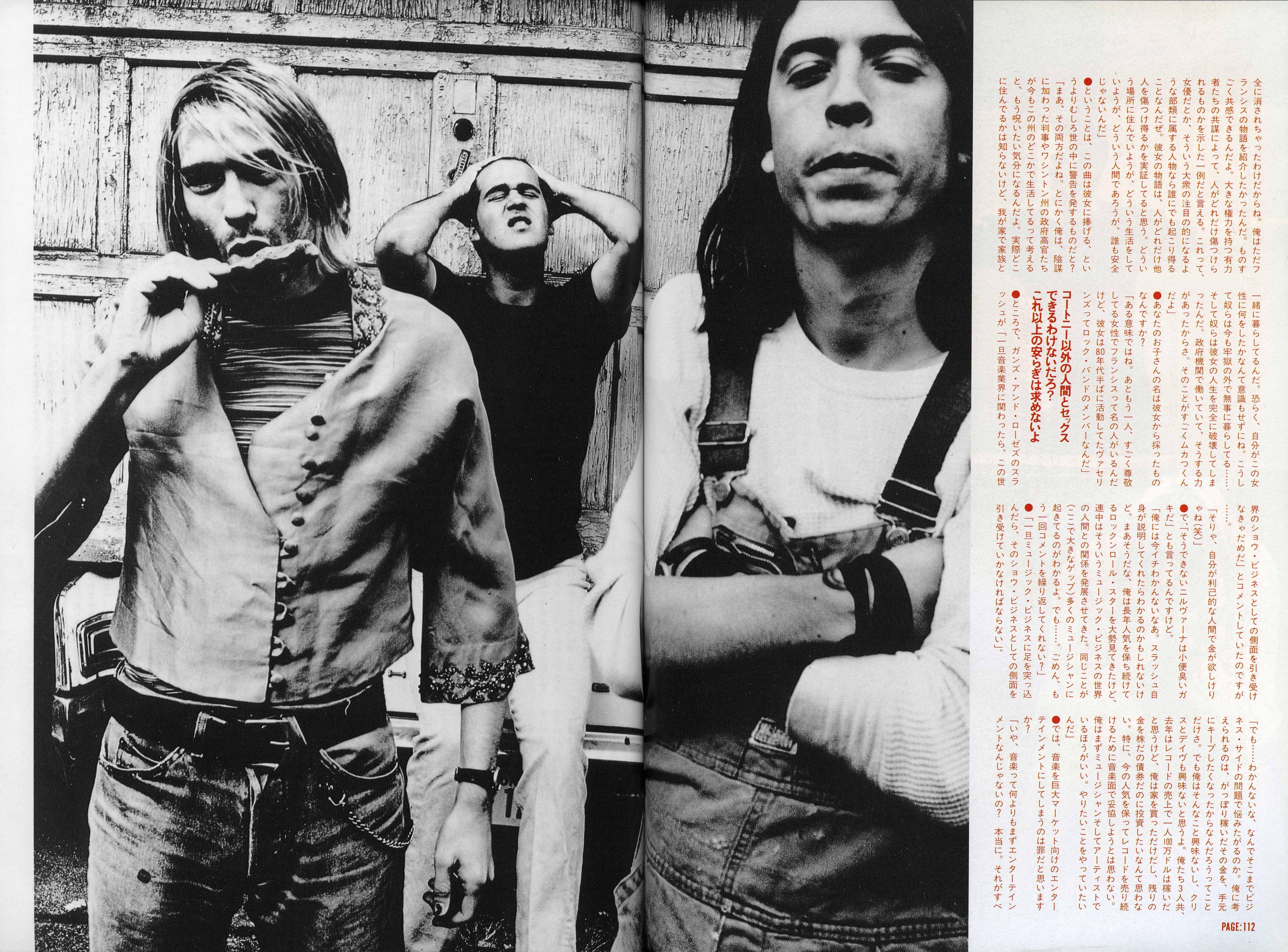
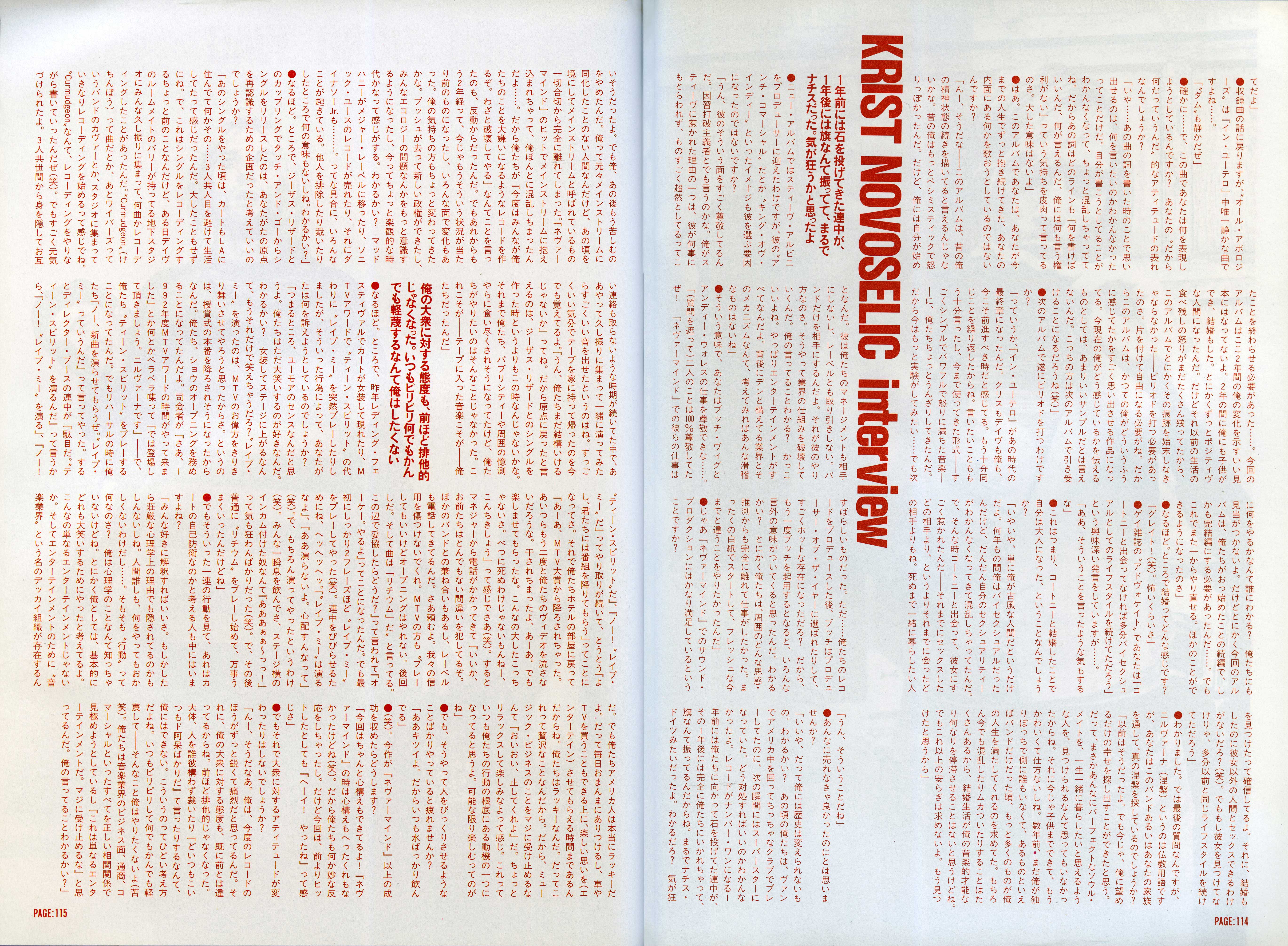
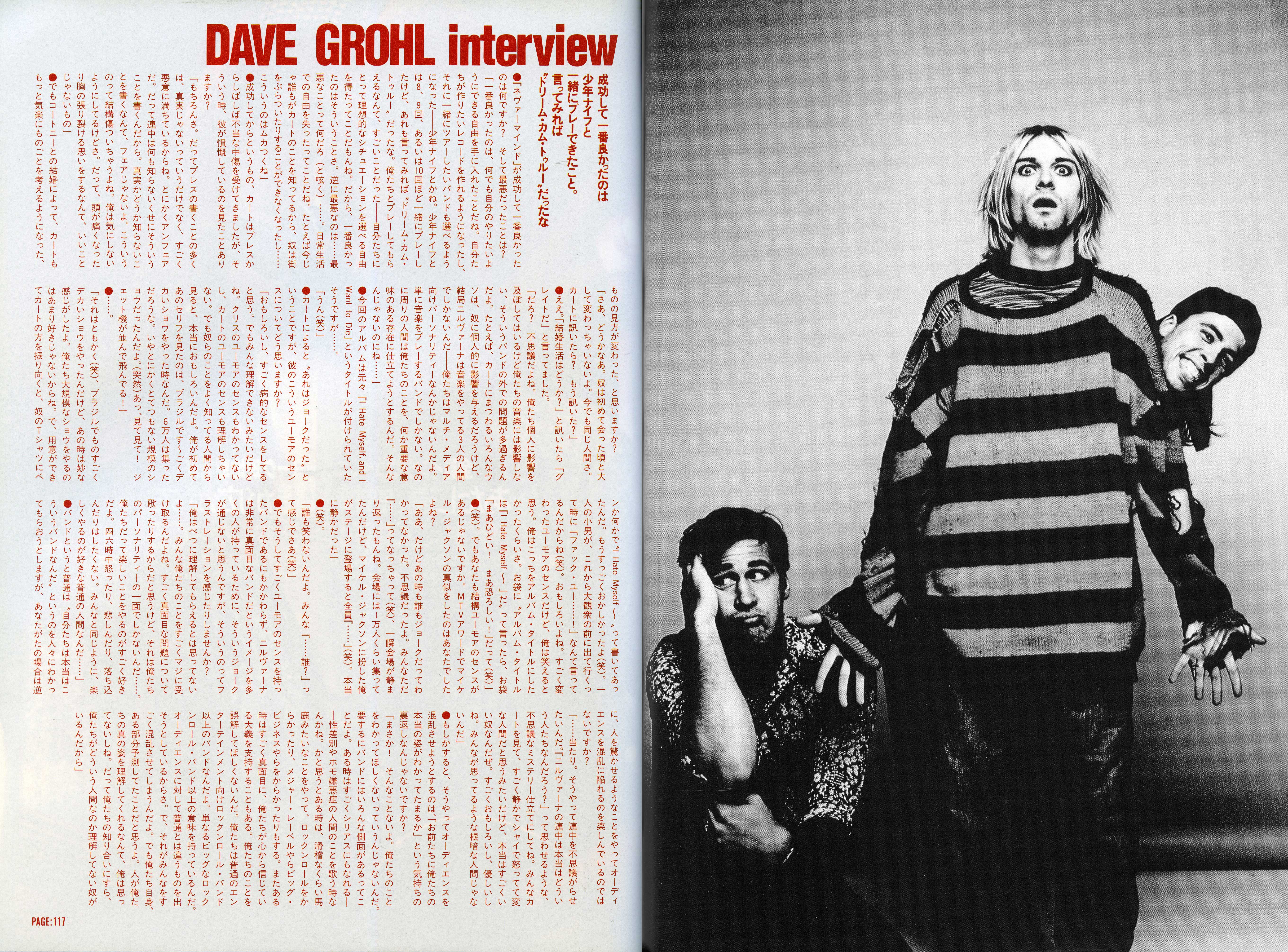
Setting the Scene
Finally, I had the chance to directly meet Nirvana and secure an interview.
Based on the information I had beforehand, I was expecting a tense, electrified atmosphere. However, in reality, there was nothing of the sort. The three members responded to the interview calmly and sincerely from start to finish, handling worldwide media inquiries efficiently and professionally. Observing them, it was clear they had thoroughly thought through how to engage with the press.
As you'll see from reading this, they didn’t rely on superficial diplomatic niceties or try to deflect with exaggerated humor. Nor did they shut down interviews entirely, like Pearl Jam, for example. Instead, Nirvana showed a very characteristic, straightforward attitude, choosing to face the many complexities surrounding them head-on with honesty and integrity.
The interviews were conducted in the order of Kurt → Krist → Dave, with each lasting a little over 30 minutes. Compared to other European media outlets that only received 10 minutes or a brief interview with one member, this was an extraordinary opportunity. From this interview, it became evident that they weren’t just naïve kids. They were striving to carefully assess both themselves and their circumstances. Despite the whirlwind of experiences over the past two years, they stayed true to their core identity as Nirvana.
Their deep emotional connection to ‘In Utero’ was palpable, to the point where they sometimes seemed slightly over-eager, but it was also reassuring. At the end of the interview, I handed Kurt a tape of Shonen Knife’s new album.
Later that evening, I went to an Aerosmith concert and saw Nirvana’s members again backstage after the show. Spotting me, Kurt approached and said, "Say hi to Shonen Knife for me. I’m a huge fan of theirs. I’ve even cried in the dressing room while listening to their music..."
Sure, got it. By the way, when I get back to Japan, would it be okay to do another interview over the phone? I asked.
"Yeah, that’d be fine…" Kurt replied, but the conversation was abruptly cut short. Before we could even say goodbye, Courtney pulled him away, almost like a mother tugging along her child. Watching them leave, I couldn’t help but reflect on what Kurt might have finally found as his ultimate place of solace.
Even now, I can’t help but question whether Kurt would ever sing those songs of contentment—about happily ever after with his beloved wife and daughter. Backstage, in Kurt Cobain’s eyes, I felt a peculiar twist, an unsettling glimmer that didn’t quite align with such a fairytale ending.
Kurt Cobain Interview:
How are you feeling today?
Kurt: I’m not sure yet. I just woke up (laughs). I won’t be able to answer that for a while.
Do you remember what we talked about during your last interview in Japan? You mentioned you didn’t want to be idolized.
Kurt: Yeah, that’s right. What I meant was, I don’t buy into the old-school rock ‘n’ roll mentality. Just because I play music doesn’t mean I’m more special than anyone else. Honestly, I get scared when I see people who are totally obsessed with rock bands, especially their members. It feels unhealthy to me.
Why do people get so excited and cry hysterically over someone who’s just playing music? I don’t get it. I’m not better than a carpenter, a car mechanic, or a building manager—I’m just a regular person. When I was a kid and a fan of music, I respected musicians, but I never got overly wrapped up in them. Even if I saw them on the street, I wouldn’t run over and bother them for an autograph."
But with the massive success of ‘Nevermind,’ you’ve become an undeniable idol to those who bought your records. Isn’t that something you can’t avoid?
Kurt: That’s true, but there’s also a good side to being in this position. It’s given me—and the band—a platform to show people that there are different ways of thinking in this world. I hope we can tell people, 'Take a breath. This isn’t as important as you think it is.'
How has the success of ‘Nevermind’ changed your lifestyle?
Kurt: “In the beginning, I felt a lot of stress. After all, something we never wanted happened. So, yeah, we were thrown off by it at first. We were like, 'What now?' But over the past two years, we’ve gotten used to it, and it’s a lot easier now.
That said, our private lives haven’t been affected much at all. Honestly. We still live reclusive lives, just like before. I’ve always been antisocial, and that hasn’t changed. Although, I don’t just sit at home all day anymore like I used to.”
When people feel stressed or overwhelmed, they often try to escape from reality. But instead of running away, you created ‘In Utero.’ Was expressing the chaos and stress caused by the success of your previous album important to you?
Kurt: “I don’t really think the stress I’ve experienced over the past two years is reflected in this album. If anything, I tried not to write about those things on purpose. Instead, I pulled stories from books, conversations with friends, or even TV shows.
Writing songs as a form of catharsis would be too obvious, too predictable. Besides, there are plenty of other things I’m angry about that I can write songs about. I’ve always done that. I don’t write as personally as people think I do.”
Really? Because when listening to ‘In Utero’, I often come across lines that feel deeply personal. Especially in a song like ‘Rape Me.’
Kurt: “That song has nothing to do with my personal experience.”
Are you sure?
Kurt: “Absolutely. I wrote that song just a week after we recorded Nevermind. It wasn’t during the media frenzy we later experienced. But I can understand why people might read into it that way—it can come across like that. But that’s not what it’s about at all.”
Then, what were the actual circumstances did you write that song?
Kurt: “What do you mean by circumstances?”
What is the hidden meaning about that song?
Kurt: “Well, at that time, I had just finished writing ‘Polly.’ ‘Polly’ has a more playful nature with wordplay and wasn’t an overt anti-rape song. But then I felt like I had to write another anti-rape song, one that was, in a way, more explicit and bold. I decided to write something that was, on the surface, just saying, ‘Rape me.’
It’s contradictory in a sense, but in that song, I wanted to express—my own way—that if I didn’t make an overt anti-rape song, people wouldn’t get it. After all, so many people didn’t understand that ‘Polly’ was an anti-rape song. Some people even thought it was a pro-rape anthem.
There was a case after ‘Polly’ was released where two men raped a woman while singing that song… It’s shocking that you have to be this explicit and precise for people to understand. That’s why I decided to make ‘Rape Me’ blunt and unapologetic.”
Many people think you’re describing the aftermath of ‘Nevermind’s’ success in ‘In Utero’. What’s your take on that?
Kurt: “It’s fine if people think that. I’m not rejecting that interpretation. But to me, it feels like an obvious conclusion. Doing what people expect—‘Oh, of course he’ll react to Nevermind’—is something I don’t want to do.
I was aware that people thought the next album would be a reaction to Nevermind’s success, which is why I deliberately avoided that. But yeah, I understand why many people might misread it that way.
At the height of Nevermind’s success, we said a lot of things—some of which I regret. People concluded that we hated being popular and selling records. A journalist even asked me recently, ‘Why do you hate your audience?’
I couldn’t believe it. Sure, we’ve made negative comments about success, but that was just how we felt in those moments. People cling to those statements forever. Right now, I don’t feel as uncomfortable with success as I did before.
We’ve been able to express our opinions through our music and support other bands. That’s a privilege. I’m genuinely happy so many people listen to our music. It might even lead them to discover lesser-known bands, which is amazing.
One thing I want to emphasize: I’m not as angry as I was two years ago.”
Some might think In Utero reflects self-hatred. Were you trying to express self-loathing through this album?
Kurt: “I’m not the type to beat myself up. Of course, if I make a mistake, I’ll be the first to admit it and punish myself. But it’s not self-hatred. Like I said earlier, my songs are more about the injustices and corruption in the world. I despise bureaucracies and government crimes more than I do myself or the people around me.”
The album was originally titled ‘I Hate Myself and I Want to Die.’ Why did you change it to ‘In Utero’?
Kurt: “That title represented our humorous side—it was just a joke. But then I realized some people wouldn’t get the joke.
I also worried that the album wouldn’t be taken seriously because the title was too provocative. Do you understand? We take our music seriously and want people to see us as more than just a joke band. So, I thought the title was too bold for the album.”
So, you don’t actually hate yourself and want to die?
Kurt: “Of course not. I know people always see me that way—as negative and miserable. That title was meant to mock that perception. But too many people read into it and saw it as a serious statement. That’s why I thought using it would be too dangerous.”
Where do you think the self-destructive impression of your music comes from?
Kurt: “Hmm… I don’t know. Maybe it’s a reaction to something. But we were more self-destructive in the past.
Back then, everything felt overwhelming—like the entire world was unbearable. You’d turn on the TV and see constant news about civil wars. I can’t fathom war or imagine myself in a situation like that.
The thought of living in Bosnia, for example, is unimaginable to me—I’d probably run away. It’s shocking that people can inflict such harm on each other.
I’ve grown up despising hate and violence. I can’t understand how people can do such things."
In Serve the Servants, you sing about your parents’ divorce. Are the lyrics based on your personal experience?
Kurt: “Some parts are connected to my experiences, yes. My parents divorced, and I had issues with my dad. But lots of people go through similar things.
I don’t want my personal experiences to be the blueprint for my songs. Instead, I prefer to focus on universal themes. Even if the lyrics use ‘I,’ it doesn’t necessarily mean I’m talking about myself—it’s just my writing style.”
On Frances Farmer Will Have Her Revenge on Seattle, you’re singing about a real actress from Seattle who had a tragic life. She ultimately died of cancer, right?
Kurt: “No, it wasn’t cancer—or maybe something similar. Frances was tortured and raped in a mental hospital for years and eventually lobotomized.
Afterward, she lived alone in a hotel, working back and forth between her job and her room. I’m not sure about the actual cause of death, but I feel like she died long before that—when the lobotomy erased her personality.”
Her story was completely erased, wasn’t it?
Kurt: “Yeah, it was. All I wanted to do was share Frances’ story. I can relate to it so deeply. It’s an example of how much damage can be done when powerful people conspire together. This could happen to anyone who’s in the spotlight, whether they’re an actress or someone else in the public eye. Her story is proof of just how much people can hurt each other. It doesn’t matter where you live, how you live, or who you are—no one is truly safe.”
So, is this song more of a warning to society than a dedication to her?
Kurt: “Well, it’s both, really. Honestly, when I think about the judges and government officials in Washington State who were part of this conspiracy and how they’re still living their lives somewhere in this state, it makes me want to curse them. I don’t know where exactly they live, but they’re out there, probably at home with their families, not even thinking about what they did to this woman. They ruined her life completely, and they’re still walking free outside of prison. They had the power to do it because they worked in government. That makes me so angry.”
Did you name your daughter after her?
Kurt: “In a way, yeah. But there’s also another woman I respect a lot named Frances. She was in a rock band called The Vaselines back in the mid-’80s.”
You couldn’t imagine being with anyone other than Courtney, could you?
Kurt: “No way. I don’t need anything more to feel at peace.”
By the way, Guns N’ Roses guitarist Slash once said, ‘Once you’re involved in the music industry, you have to embrace its show business aspects.’ What do you think about that?
Kurt: “Well, if you’re selfish and just want money, I guess that makes sense. laughs”
He also said, ‘Nirvana is just a bunch of snotty kids who can’t do that.
Kurt: “I don’t really get it. Maybe if Slash explained it to me directly, I’d understand. But yeah, I’ve seen a lot of long-standing rock ’n’ roll stars who’ve cultivated relationships with people in the music business world. The same thing happens to a lot of musicians... (lets out a loud burp). Sorry, could you repeat the quote?”
‘Once you’re in the music business, you have to take on its show business aspects.’
Kurt: “I still don’t understand why people want to stress so much about the business side of things. The only thing I can think of is they just want to hold onto all the money they’re making. But I’m not interested in that, and I don’t think Krist or Dave are either. Last year, we each made around a million dollars from record sales, and all I did was buy a house. I don’t care about investing the rest in stocks or bonds or anything. And I’m definitely not interested in compromising musically just to stay popular and sell records. I’d rather stay a musician and artist, doing what I want to do."
Do you think turning music into entertainment for a massive market is a crime?
Kurt: “No, music is entertainment above all else. That’s what it’s supposed to be.”
Let’s go back to the songs. ‘All Apologies’ is the only quiet track on ‘In Utero’, isn’t it?
Kurt: “‘Dumb’ is quiet too.”
True… So, what are you trying to express with that song? Is it a reflection of your ‘so what?’ attitude?
Kurt: “No… Honestly, the only thing I can remember about writing the lyrics for that song is not knowing what I wanted to say. I got confused—I didn’t know what to write, what I could say, or if I even had the right to say anything. So, every line of that song is kind of ironic, like, ‘What do I write? What can I say? I don’t have anything to say.’ It doesn’t mean much, really.”
Hmm. With this album, are you trying to sing about something that’s been inside you throughout your life?
Kurt: “Well… yeah. I guess you could say this album continues to depict the mental state I was in back then. I used to be more pessimistic and angry. But I needed to finish what I’d started. This album doesn’t represent the changes I’ve gone through over the past two years. In those two years, I had a child, got married, and became a much more positive person. But there was still a lot of leftover anger from my earlier life that I needed to deal with. I had to put a period on it, tie it all up, and free myself from it.
So, this album is a reminder of how I used to feel. But as a reflection of how I feel now? It’s not a very good example of that. I think I’ll take that on with the next album. (laughs)”
So, will the next album finally put a period on everything?
Kurt: “Well, ‘In Utero’ was the final chapter of that era. Krist, Dave, and I all feel it’s time to move forward. We’ve repeated the same thing enough. We’ve said everything we wanted to say. And honestly, we’re starting to get tired of the style we’ve been using—simple, powerful, and angry music. So, we want to experiment more now… but who knows what we’ll do next? Even we don’t know.
This album was a continuation of what we started and had to be a conclusion. But now we can start fresh and try something different.”
Got it. By the way, how’s married life treating you?
Kurt: “Great! laughs It’s scary how good it is.”
In the gay magazine Advocate, you made an interesting comment: “If I hadn’t met Courtney, I’d probably still be living a bisexual lifestyle.” Can you elaborate on that?
Kurt: “Yeah, I think I said something like that.”
Does this mean marrying Courtney made you grow up?
Kurt: “No, no. It just means I’m kind of an old-fashioned person. I was bisexual for years, but I eventually got confused about my own sexuality. I didn’t know what I was anymore. And then I met Courtney, and I was incredibly drawn to her—more than anyone I’d ever been with, or even met, before. I knew she was the one I wanted to spend the rest of my life with.
I’m sure of it. And now that I’m married, there’s no way I could be with anyone else, right? laughs But if I hadn’t met her, I probably would’ve continued living the same lifestyle I had before.”
Understood. One last question. Nirvana is a Buddhist term—through your band or your family, are you seeking true nirvana?
Kurt: “I used to be. But now I think I’ve found as much happiness as I could ever hope for. I never thought I’d find such a perfect soulmate—someone I’d want to spend my life with. And now I have a child too, and I just adore them.
A few years ago, I was all alone, with no one around me but the band. I wanted something more to fill my life. Of course, I still get confused or frustrated sometimes, and I don’t think being married will ever stop my creativity or anything like that. But I’m not searching for peace anymore. I think I’ve already found it.”
Krist Novoselic Interview:
For the new album, you brought on Steve Albini as a producer. Was his ‘anti-commercial’ image and reputation as the ‘king of indie’ part of the reason you chose him?
Krist: “Yeah, I really respect that side of him. I guess you'd call him an iconoclast. One of the reasons I was drawn to Steve is that he’s completely untethered and incredibly detached from all the noise. He doesn’t deal with management or labels—he only works with the band. That’s his way of breaking down the system. You get what I’m saying? It’s cool, right? It’s all about entertainment at the end of the day. When you think about the industry and its mechanisms, it’s laughable how absurd it all is.”
In that sense, are you saying you didn’t respect the work of Butch Vig and Andy Wallace?
Krist: (Interrupting the question) “No, I respected them 100%! Their work on Nevermind was incredible. But... after producing our record, Butch was named Producer of the Year and became this incredibly hot name. So, bringing him on again would’ve brought a lot of baggage—like unspoken implications, you know? What we wanted was to step away from any of that speculation or outside expectations. We wanted a completely fresh start, to do something different and new.”
So, you were satisfied with the sound production on Nevermind?
Krist: “Yeah, that’s right.”
Did you ever wish it hadn’t sold so well?
Krist: “No, because I can’t change history, you know? Back then, we were touring the U.S. in a van, playing tiny clubs, and then, all of a sudden, we were superstars. We had no idea how to deal with it. One moment, people were throwing stones at us, and the next, they were completely obsessed, waving flags like fanatics. It felt like Nazi Germany, you know? It was maddening. But after that, I decided to stop letting it get to me.
I’ve always been someone who’s outside the mainstream, but after that whole experience, I completely detached myself from anything considered mainstream. The success of Nevermind thrust us into the heart of it, and I was utterly confused. That’s why we said things like, ‘This time, we’re going to make an album that everyone will hate. We’ll deliberately destroy it.’ That was a reaction to the situation.
But it’s been two years since then. Things have shifted in a lot of ways, and I feel a little differently now. Bush is gone, there’s a new administration, people are becoming more conscious of ecological issues—it feels like a slightly more optimistic time. You know what I mean? Even bands like Mudhoney moving to a major label, Sonic Youth selling records, or Dinosaur Jr.—a lot is happening. Excluding or judging others doesn’t mean anything. You get it, right?”
I see. By the way, your split single with The Jesus Lizard, released through Touch and Go, was said to be a way to reconnect with your roots. Is that accurate?
Krist: “When we worked on that single, Kurt was living in L.A., and we were all kind of avoiding each other, living in isolation. We weren’t doing much of anything. But before recording the single, we all gathered at Barry (Dave’s roommate)’s basement studio after a long time apart and recorded a few songs. We worked on ‘Curmudgeon’ (a track) and a cover of a Wipers song. It was just us suddenly getting together and recording.
‘Curmudgeon’ was written while we were recording it (laughs). But it was so energizing. After being disconnected from each other and the world, getting back together and making music felt amazing. I remember bringing the tape home feeling great—like, ‘Yeah, we still got it.’
So, if you’re talking about reconnecting with our roots, I’d say it happened then, more than when we did the single with The Jesus Lizard. Before that, we were almost consumed by publicity and speculation, but that’s not what we’re about. The music on that tape—that’s who we are.”
I see. By the way, last year at the Reading Festival, Kurt appeared on stage in drag, and at the MTV Awards, instead of playing 'Teen Spirit,' you suddenly performed 'Rape Me.' What message were you trying to convey through those actions?
Krist: “At the end of the day, it's about having a sense of humor. We just love to have a big laugh, you know? Showing up on stage in drag—just that alone is hilarious, isn't it? As for playing 'Rape Me,' we did it to mess with the bigwigs at MTV. You see, we were almost pulled from performing at the ceremony. We were supposed to open the show. The host would say something like, 'Ladies and gentlemen, welcome to the 1992 MTV Awards!' and then introduce us—'Here’s Nirvana!'—and we were supposed to play 'Teen Spirit.'
But during rehearsals, we were like, 'Nope, we’re playing a new song. It’s called “Rape Me.”' And then the folks in the director’s booth were like, 'No, you’re playing “Teen Spirit.”' And we said, 'No! We’re doing “Rape Me.”' And they were like, 'No, “Teen Spirit.”' And it went back and forth until finally, they said, 'Fine, you’re off the show.'
So, we went back to our hotel room like, 'Oh well, we got pulled from the MTV Awards. They’ll probably never play our videos again. We’ve been blacklisted. Ah well, it was fun while it lasted. Not like it’s the end of the world, right? Screw it.' (laughs)
Then we got a call from our manager, who was like, 'You guys are making a huge mistake. There are implications with other bands and the label’s been calling about this. Listen, MTV said you can still play, but not as the opener, and you’ll need to play "Lithium." How about a compromise?' So, we agreed, like, 'Fine, we’ll do it.'
But before starting 'Lithium,' we made sure to play two full lines of 'Rape Me' (laughs). Just to freak them out. Oh man, the panic! They were like, 'Don’t play “Rape Me.”' And we were like, 'Nah, we won’t, don’t worry.' (laughs) And then, of course, we did it. For a moment, everyone froze. The guy backstage with the intercom was like, 'Ahhhhhh!'—he was losing it (laughs). After that, we transitioned into 'Lithium,' and everything went smoothly.”
Some people view those kinds of actions as Kurt’s way of defending himself. What do you think about that?
Krist: People are free to interpret it however they like. Maybe there’s some profound psychological reason behind it. Who knows? Humans are unpredictable, right?
Honestly, I don’t know much about psychology, but to me, it’s all about having a good laugh. At the end of the day, this is just entertainment. That’s why this massive thing called the 'music industry' exists—to entertain people.
We Americans are incredibly lucky. We get to eat every day, buy cars and TVs, and still have time to enjoy ourselves. That’s a privilege. So, taking the music business too seriously? Nah, come on. Relax and have fun, you know? That’s always been one of the underlying motivations behind what we do—to enjoy ourselves as much as possible.”
But don’t you ever feel exhausted, always doing things that surprise people?
Krist: “Oh, it’s exhausting. That’s why I drink water all the time.”
(laughs) What if this new album becomes even more successful than 'Nevermind'?
Krist: "This time, we’re prepared! With 'Nevermind,' we weren’t ready at all (laughs). So, yeah, we reacted weirdly back then. But now, if this one becomes a bigger hit, we’ll just be like, ‘Hey, awesome!’”
Do you think this success would change your attitude toward the public?
Krist: “Hmm, good question. I’d say this new record is much sharper and more intense. Plus, my attitude toward the public has already shifted. It’s not as exclusive as it used to be.
I mean, I can’t go around judging everyone and saying, 'They’re all idiots.' That’s such a nasty way to think, right? I don’t want to be on edge, constantly despising everything.
We try to see the business side, the commerce, and the marketing of the music industry in the proper perspective. To us, it’s just entertainment. Don’t take it too seriously. You know what I mean?”
Dave Grohl Interivew:
What was the best and worst thing about the success of Nevermind?
Dave: “The best thing was gaining the freedom to do whatever we wanted. We could make the records we wanted to make and choose the bands we wanted to tour with—like Shonen Knife, for example. We’ve played with them 8, 9, maybe even 10 times, and honestly, it was a ‘dream come true.’ Getting to play with them was amazing—it meant we had the freedom to create the ideal situation for ourselves. So yeah, that was definitely the best part.
As for the worst part... hmm, what was the worst? (pauses) Losing the freedom in everyday life, I guess. For example, now everyone knows Kurt, so he can’t just walk around town anymore... and that sucks.”
Since achieving success, Kurt has often been unfairly criticized by the press. Have you ever seen him upset about that?
Dave: “Of course. A lot of what they write isn’t just untrue—it’s outright malicious. It’s really unfair because they write things without knowing anything about the truth. Writing something without knowing if it’s true or not—that’s not fair. That kind of stuff really hurts. I try not to let it get to me because, honestly, letting it get to your head or your heart—it’s just not worth it.”
Do you think Kurt’s perspective has changed, or he’s become more relaxed since marrying Courtney?
Dave: “Who knows? Honestly, he hasn’t changed much from when I first met him. He’s still the same person. Why don’t you ask him? Did you already?”
Yes, when I asked him about married life, he said, ‘It’s great.’
Dave: “See? Funny, right? There are so many external problems affecting us personally, but they don’t really impact our music. For example, all the lies about Kurt definitely affect him personally, but in the end, Nirvana is just three people making music. We’re not multimedia personalities or anything like that—we’re just a band that plays music. But people try to make us into something more significant than we really are.”
I heard the album was originally going to be titled ‘I Hate Myself, and I Want to Die.’
Dave: “Yeah, that’s right. (laughs)”
According to Kurt, that was meant as a joke. What do you think about his sense of humor?
Dave: “It’s hilarious, but also pretty dark. People don’t really get it, though. They don’t understand Kurt’s sense of humor, and they don’t get Krist’s either. But for those of us who know them well, it’s genuinely funny. The first time I saw that line was in Brazil, at this massive show—we played for like 60,000 people. It was just a huge event. (suddenly) Oh, look! Jets flying in formation!
(brief pause)
Anyway (laughs), back to Brazil. We’re getting ready for the show, and I look over at Kurt, and he’s got ‘I Hate Myself’ scribbled on his T-shirt in pen or something. It was so funny. Here’s this small guy about to go out in front of a massive crowd, basically saying ‘F*** you...’ (laughs). It’s such an odd sense of humor, but I thought it was great. I even wanted to make that the album title. When I told my mom, she was like, ‘That’s horrible! That’s awful!’ (laughs).”
(laughs) But you have a pretty good sense of humor yourself. You were the one who impersonated Michael Jackson at the MTV Awards, right?
Dave: “Yeah, but no one got the joke. It was weird. Everyone just went like, ‘...’ (laughs). The whole place, with about 10,000 people, went completely silent when I walked out as Michael Jackson. It was so quiet.”
(laughs).
Dave: “No one laughed. Everyone was just like, ‘...who is this?’ (laughs).”
Despite being a band with such a great sense of humor, many people see Nirvana as a very serious band. Do you feel frustrated when people don’t understand your jokes?
Dave: “I don’t really expect people to get it. Everyone takes us so seriously, probably because we sing about heavy topics. But that’s just one part of our personality. We love doing fun things too. I don’t want to be angry, sad, or down all the time. We’re just normal people who like to have fun, like everyone else.”
Most bands try to make their real identity clear to their audience, but it seems like you enjoy confusing people. Do you?
Dave: “Exactly. We like to make people wonder, ‘What is Nirvana really like?’ We want to keep a bit of mystery. People see Kurt and think he’s this quiet, angry, weird guy, but he’s actually a great person—funny, kind, and nothing like what people imagine."
Is trying to confuse the audience your way of saying, ‘You don’t really know who we are’?
Dave: “Not at all! It’s not that we don’t want people to know us—it’s just that there are many sides to the band. Sometimes we’re serious, like when we sing about issues like sexism or homophobia. Other times, we do ridiculous things to mock rock ’n’ roll, major labels, or big business. And other times, we’re serious about causes we genuinely believe in. We don’t want to be misunderstood—we’re more than just an entertainment rock band. We’re trying to offer something different, and that confuses people. But honestly, I don’t expect people to fully understand us. Even some of our friends don’t get us.”
